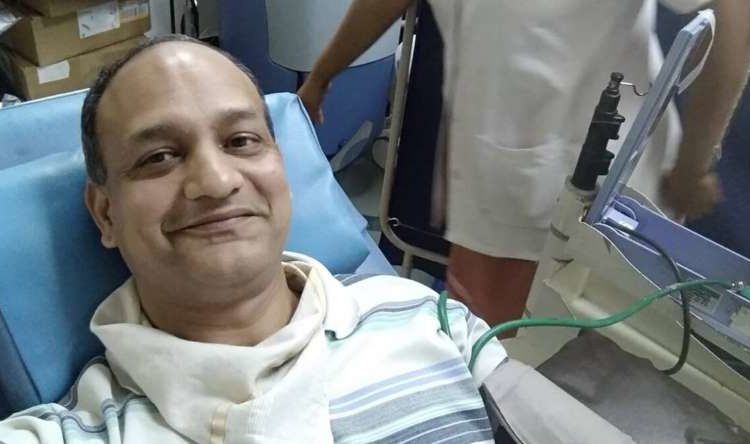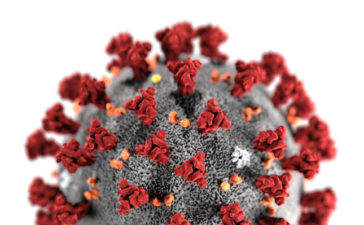On Saturday, a 50-year-old Pune-based social worker Ajay Munot donated blood plasma for the ninth time, possibly the maximum by anyone in the city so far.
“I had hoped to donate on my birthday three days ago when I turned 50 but was told to wait as the last donation was completed on February 5. There has to be a 14-day interval,” Munot said.
Infected with Covid-19 in July last year, Munot recovered after a month and made up his mind to help others and started donating plasma. A resident of Kothrud locality, he donated plasma at least once every month after recovering. On Saturday, he donated plasma at the Sahyadri specialty hospital.
“I feel fine,” he said.
Convalescent plasma therapy has been used since the early 1900s to treat emerging infectious disease. Plasma is the liquid part of the blood and is a source of antibodies against the infection. The donor would have to be a documented case of Covid 19 and healthy for 28 days since the last symptoms.
Dr Poornima Rao, senior consultant with Sahyadri specialty hospital blood bank pointed out that there was still a demand. ”In Ajay Munot’s case, the bone marrow stimulation had helped him to maintain the stimulation of antibodies considering all levels during the earlier eight procedures. As per FDA criteria, the antibody levels are 4.51 today which is pretty good,” Dr Rao said, adding the chemiluminescence method was used and when levels are positive for antibodies then the procedure is taken up.
While the ongoing Covid19 pandemic had led to the scaling up of CP therapy initially, the state medical education department’s ambitious Platina trial was stopped in January this year. Dr Mohammed Faizal who was the then state coordinator of the Platina project told The Indian Express that on January 11 said that the Data Safety Monitoring Board DSMB decided to close the trial. Interim analysis of the data showed higher deaths in the group receiving plasma.
“The project had good intentions but if it is causing more harm than good there was a need to stop the trial even at the cost of negative publicity as use of plasma is not recommended in severe Covid 19 patients,” Dr Faizal said.
Earlier too, the Indian Council of Medical Research’s Phase II Open Label Randomised Controlled Trial to Assess the Safety and Efficacy of Convalescent Plasma (PLACID) trial had found CP ineffective in arresting Covid 19. There needs to be a detailed study on effectiveness of CP moderate patients as there are anecdotal cases where this therapy has worked, Dr Faizal said.
However, convalescent plasma therapy has also saved lives when administered at the appropriate time. Dr Pradeep D’Costa, chief intensivist at KEM and Sahyadri hospital Nagar road said that overall clinical impression has shown that if the patient is administered plasma in time it can prevent worsening.
“Trials have used CP too late. Once you miss the window period, there is no role of plasma. Hence interventions at a late stage do not work. The patient’s condition has to be monitored and there is a short window period when he/she is shifting from mild to moderate disease that plasma can play a role,” Dr D’Costa said. .
Arun Thorat, Director of State Blood Transfusion Council (SBTC), however pointed out that the requirement for CP is not that high as it was earlier and it is based on the treating doctor. Pune-based Ram Bangad, President, Raktache Naate Trust who has donated blood 133 times apart from plasma said he receives several calls daily from people for plasma and even from across the state.
“We are encouraging people to donate,” Bangad said.





